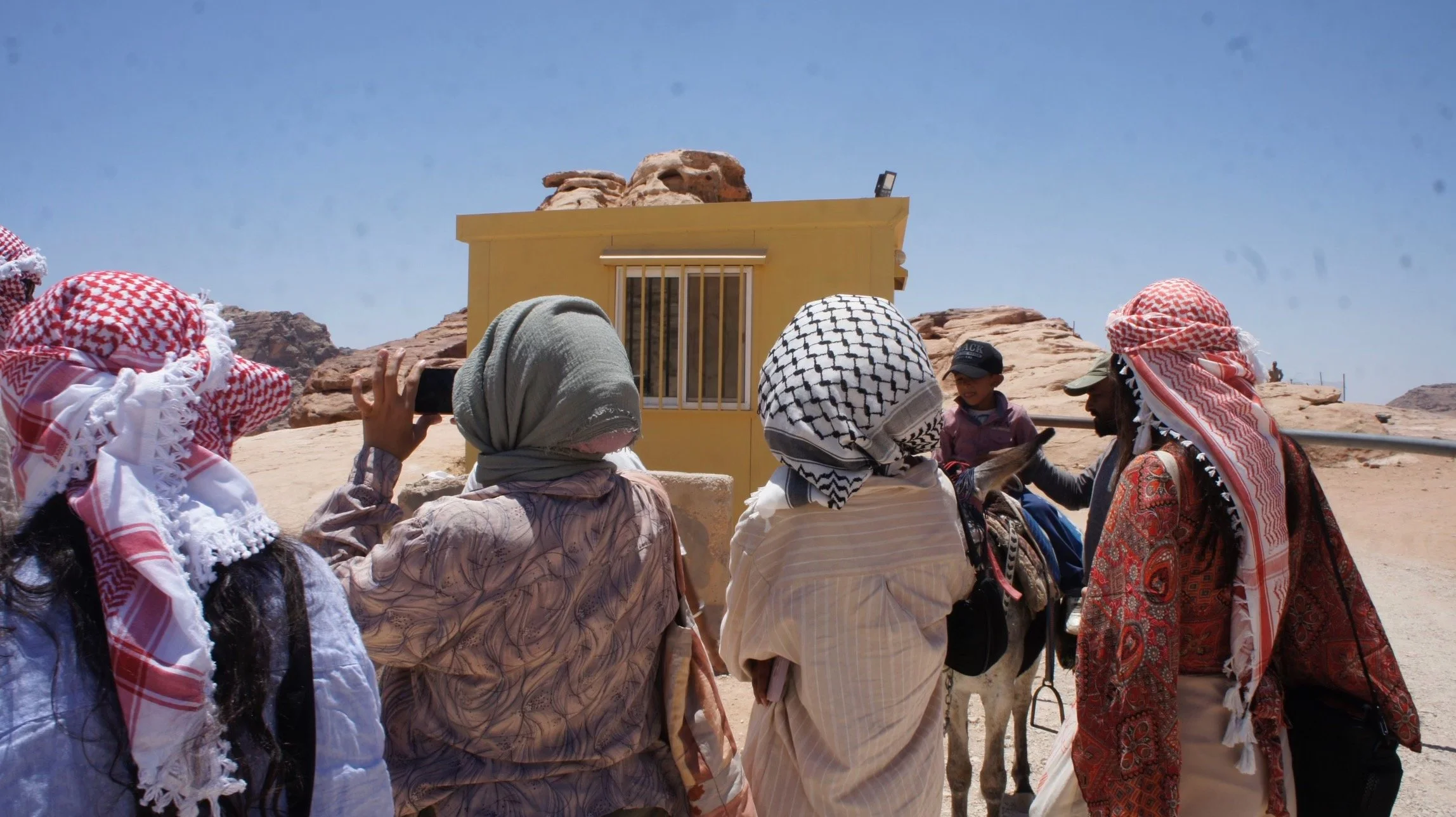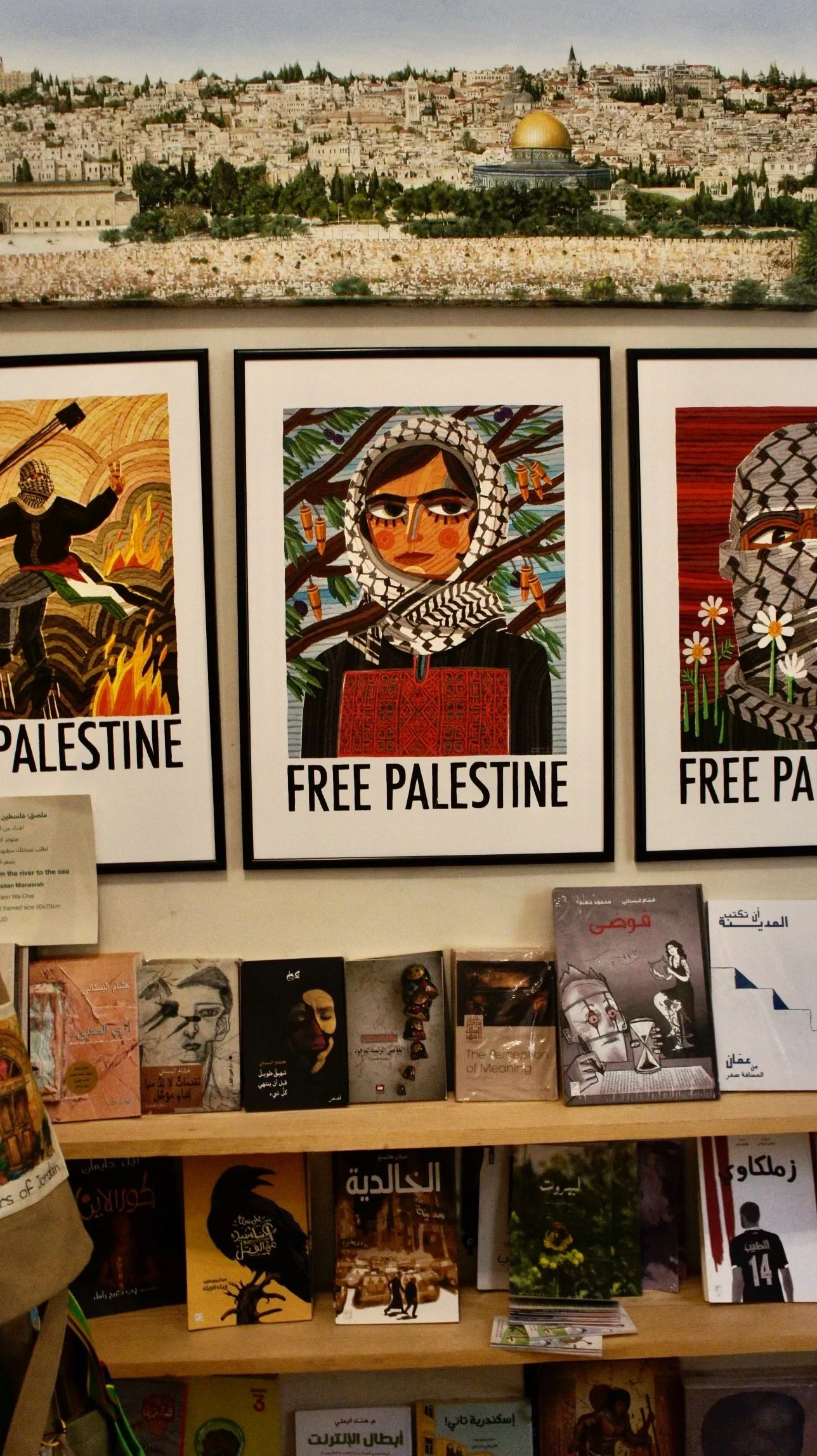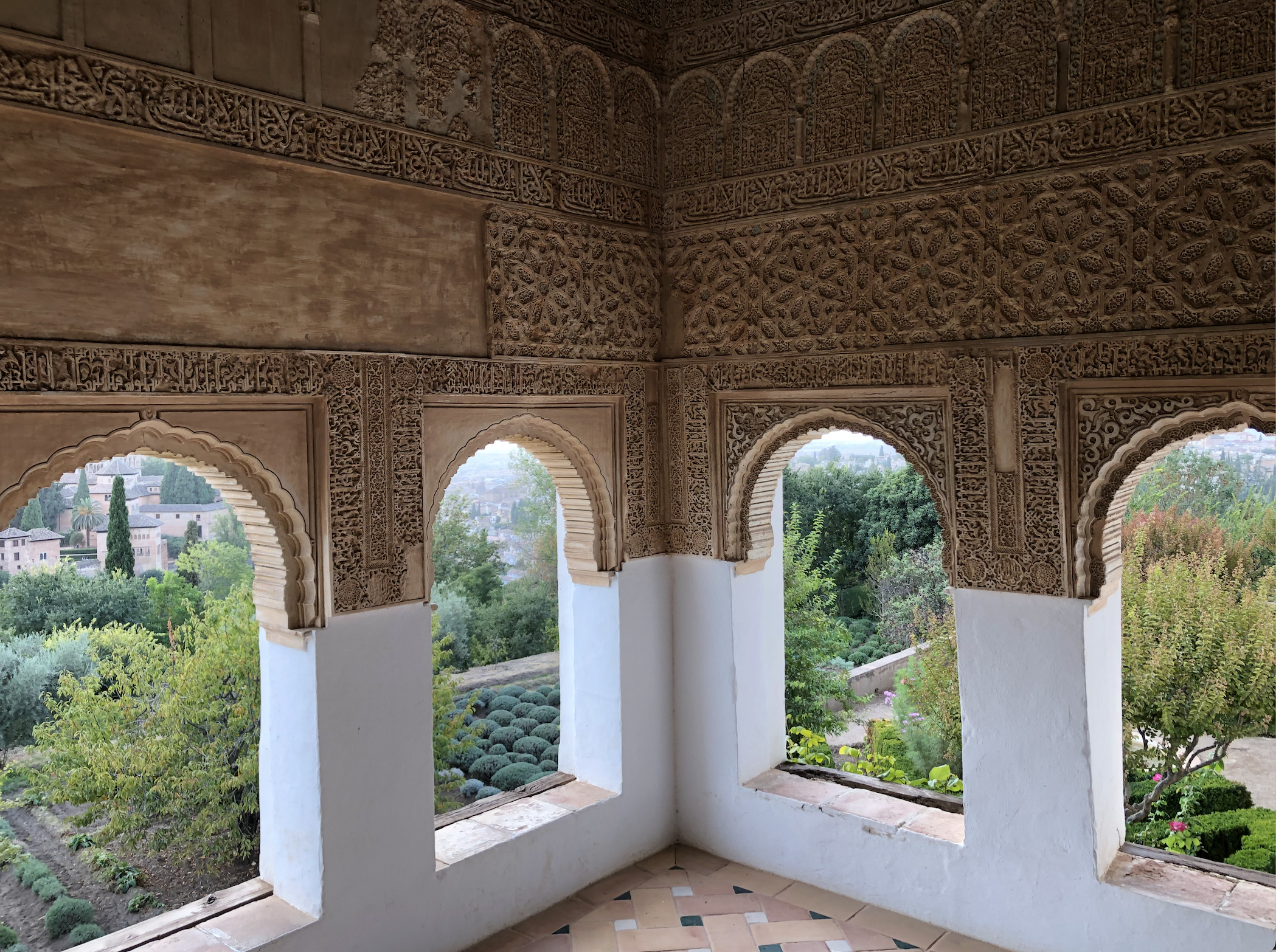MENA Diaspora Students Participate in Study Abroad Programs as a Form of Resistance
By Ragad Ahmad
April 28, 2025
For Bilal Urick, a 23-year-old Palestinian American doctoral student studying Arabic literature in Philadelphia, learning about the history and culture of the MENA (Middle East and North Africa) region at an American institution carries a bitter irony.
“As Arabs, we study our own cultures and traditions in [the context of] the Anglophone Western world that has historically extracted our resources and distorted our narratives," he said. “It works in the interest of these countries to bring our intellect and talent to the West.”
Urick is committed to what he calls the “return journey” of the knowledge he is acquiring to the land of his ancestors, and he sees studying abroad as an avenue to do so. For other MENA students, studying abroad offers experiences that are not available to them in the U.S.—along with some unexpected rewards.
Asiya Jarab’s class on a trip to Petra, Jordan in the summer of 2024. Photo: Asiya Jarab
Asiya Jarab, 20, a mathematics and Arabic language and literature major at Swarthmore College, found studying abroad as rewarding personally as it was educationally. Jarab’s maternal family was forced to flee Palestine during the Nakba and become refugees, settling in the Baqa’a refugee camp in Jordan. Participating in an immersive summer program with the Sijal Institute for Arabic Language and Culture in Amman, Jordan, in the summer of 2024 felt like a homecoming.
"The best and only way to fully connect with my culture, learn my history and study my language was to be in Jordan," she said. She took public transportation with her aunt, who would point out streets with significance to her family, and conversed daily in Arabic with residents of the refugee camp who shared their life stories. These experiences allowed her access to cultural nuances and historical contexts that classroom learning in the U.S. couldn't provide.
The interior of Fann wa Chai, a cafe in Amman, Jordan frequented by students. Photo: Asiya Jarab
Dounya Ramadan’s experience abroad was also deeply personal—and tied to her family’s history of displacement and resistance. Ramadan, a 25-year-old Libyan American, graduated from Bryn Mawr College in 2022 with a degree in political science. Following graduation, she chose to study in Granada, Spain, where her family had roots. Since living in Libya was not an option due to ongoing war and instability, Spain provided Dounya with a meaningful alternative connection to her identity, one that first developed when she visited her grandfather and uncle in Madrid as a child.
"The love for the land and the language of Spain that my grandfather instilled in me drew me to study there," she said.
Dounya Ramadan watches the sunset from Mirador de San Miguel Alto in Granada, Spain. The spot offers a panoramic view of the city, including Albaicín, the oldest neighborhood in the city, also known as the Arab Quarter. Photo: Dounya Ramadan
In Granada, Ramadan immersed herself in the rich Islamic history of Andalusia, which she first learned about as an undergraduate. The experience allowed her to engage with her heritage through a different lens, one that acknowledged the complex historical relationships between North Africa and southern Europe.
The interior of the mirador, or lookout, in one of the gardens of the Generalife, a Moorish palace in Granada. Close to the Alhambra, the palace was built in the 13th century during the rule of the Nasrid dynasty. Photo: Dounya Ramadan
But despite the opportunities they provide, study abroad programs come with their own set of challenges, as Urick and Jarab both found.
Reflecting on her experience in Jordan, Jarab recalled that certain topics were off limits at the Sijal Institute due to "program and government restrictions," including discussions about the history of the Baqa’a Refugee Camp. She noted that the help she received from her family to contextualize what she was learning in the classroom was not available to her non-MENA classmates in the program.
Urick observed a similar dynamic. When he first enrolled in a study abroad program in Jordan in 2022, he sought an honest and reciprocal relationship with “the land and its scholars.” But he found that U.S.-sponsored institutions overseas can also create students who are “passive participants in Western academic exchange” and perpetuate “the extractive methods of Western academia.”
Seeing them as a possible extension of American imperialism around the world, Urick said he advises MENA students to be cautious about their program choices. "When engaging with study abroad programs in the MENA region through American institutions, we need to be intentional about how we position ourselves and what we're studying."
This intentionality is also important to Ramadan as she makes plans to continue her studies. Her decision to pursue graduate programs in Spain stems from the ongoing suppression at institutions in the U.S. of students protesting the genocide in Gaza—as well as the failure on the part of American-sponsored institutions abroad to strongly condemn it, she said.
"Why would I use their educational resources when they have engaged in the actions that they have since October 2023?"
***
Ragad Ahmad is a Palestinian-American Muslim born and raised in Philadelphia. She currently studies Peace and Conflict Studies at Swarthmore College, where she explores issues of decolonization and climate justice.




